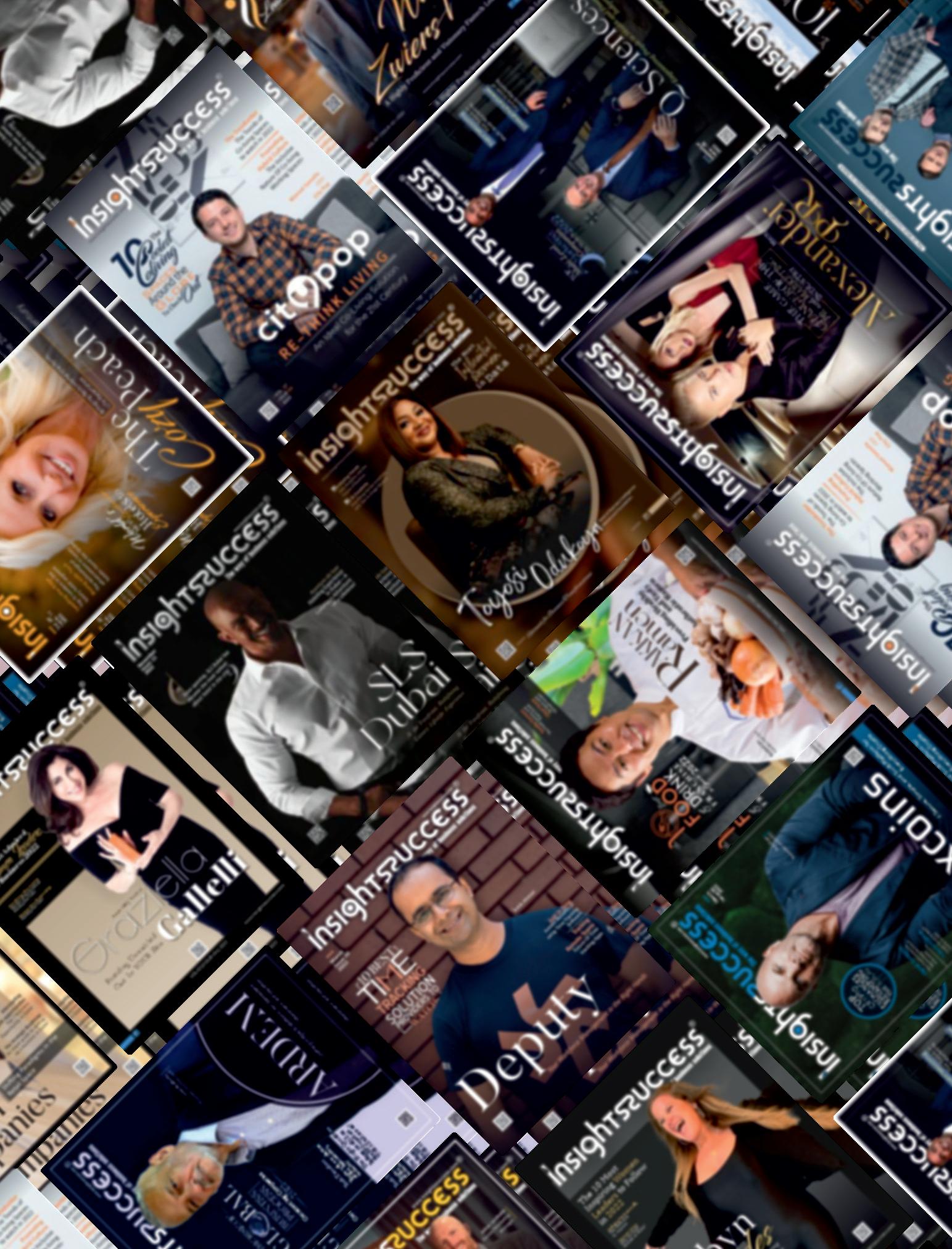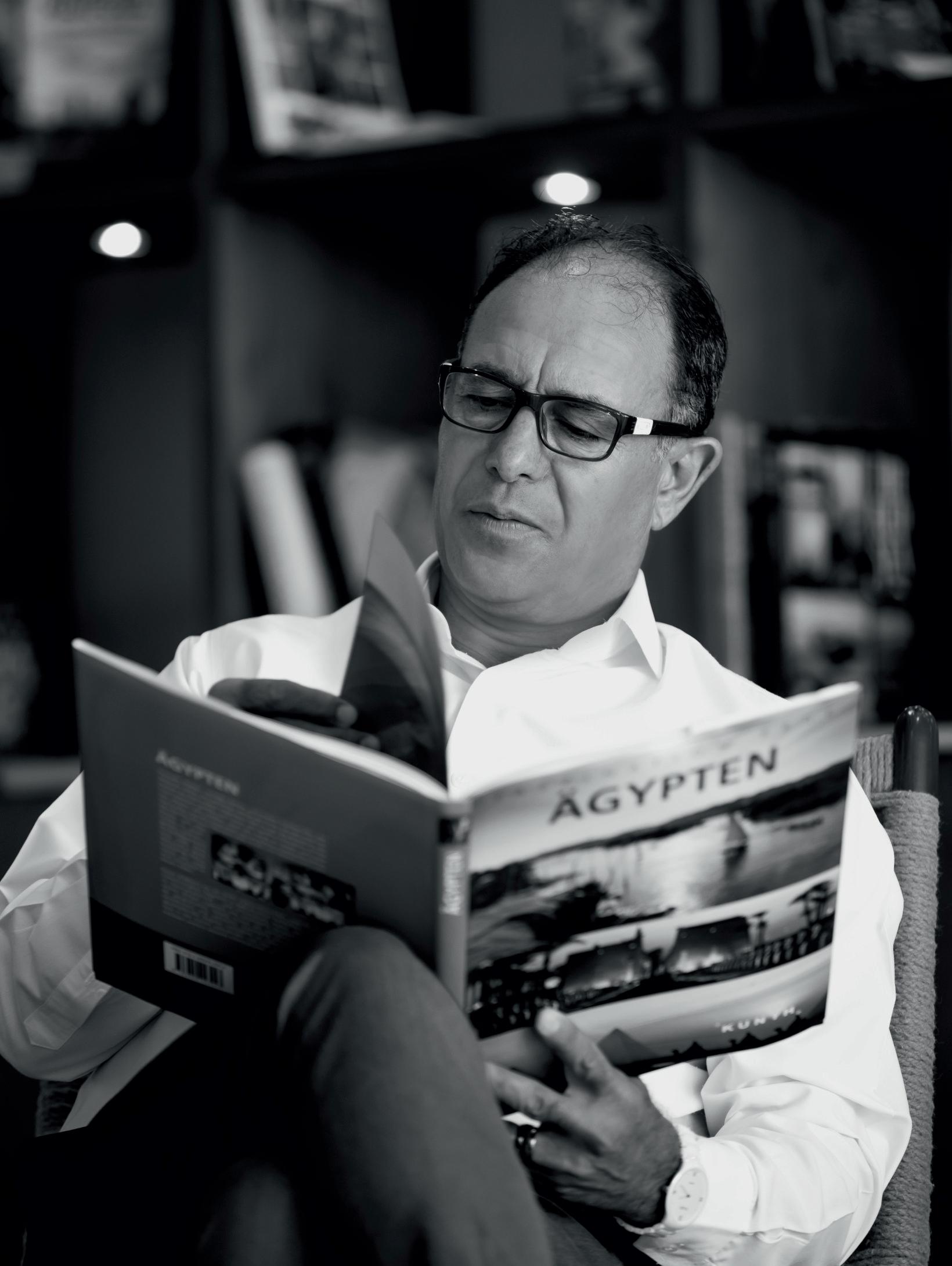

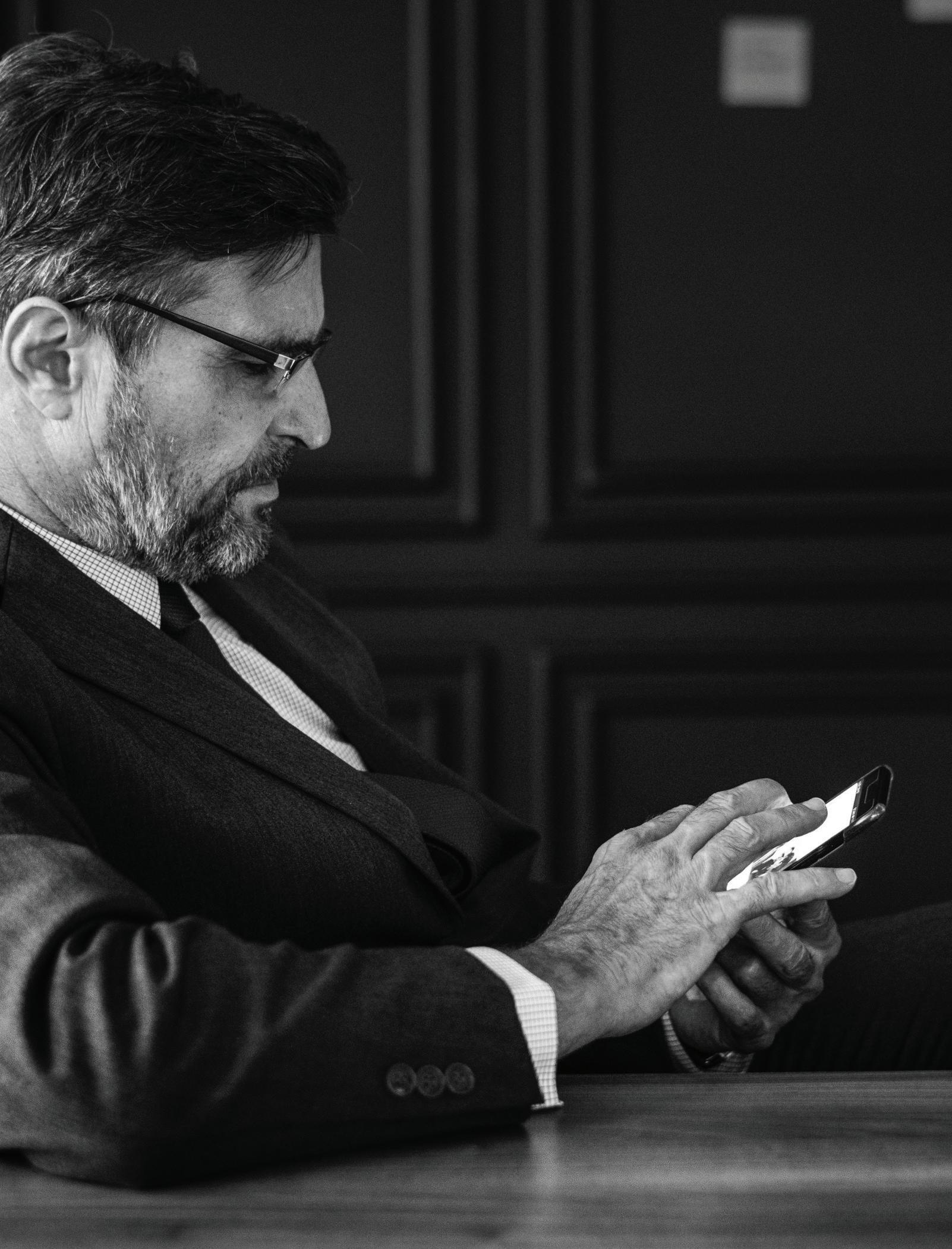










natimewhenleadershipistoooftenmeasuredinnoise,
visibility, and metrics, Mehdi Othmani offers a welcome—andnecessary—counter-narrative.Hisstory isn’t one of overnight success or calculated ambition. It’s a storyofpresence,humility,anddeephumanconnection.And in honoring him as 2025’s Most Impactful Personality, we celebrate not just what he has achieved, but how he has chosentolead.
Mehdi’s journey into hospitality wasn’t planned—it was awakened.At 19, witnessing a Tunisian hotelier turn a latenightcheck-inintoanactofgracelitasparkinhimthatwould quietlygrowintoacareerofinfluenceacrosscontinents.That moment, subtle yet transformative, laid the foundation for a leadership philosophy rooted in empathy, emotional intelligence,andculturalfluency.
Today,asClusterGeneralManageratDERTouristikHotels & Resorts, Mehdi brings over two decades of experience spanningtheCaribbean,MiddleEast,Africa,andEurope.But hisimpactgoesfarbeyondoperationalexcellenceorindustry accolades What truly sets him apart is the culture he builds—cultures of trust, respect, and shared growth. In boardrooms and back offices alike, Mehdi leads by creating spaceforotherstostepforward,tobeheard,andtosucceed.
Whetherguidinghisteamsthroughtheuncertaintyofaglobal pandemic or mentoring emerging leaders, his approach remains the same: quiet, composed, and intentional “Leadershipisnotloud—itisfelt,”hesays.Andindeed,those who have worked with him often describe a sense of calm confidence, of being seen and supported, that is rare and transformative.
In this special edition, we don’t just recognize Mehdi Othmani for his title or tenure. We honor a man who has redefined leadership not as dominance, but as empowerment. In every interaction, in every culture he’s touched, he embodies the quiet strength that true impact demands.
This recognition is not a spotlight; it’s a tribute to someone whoconsistentlyshinesitonothers.
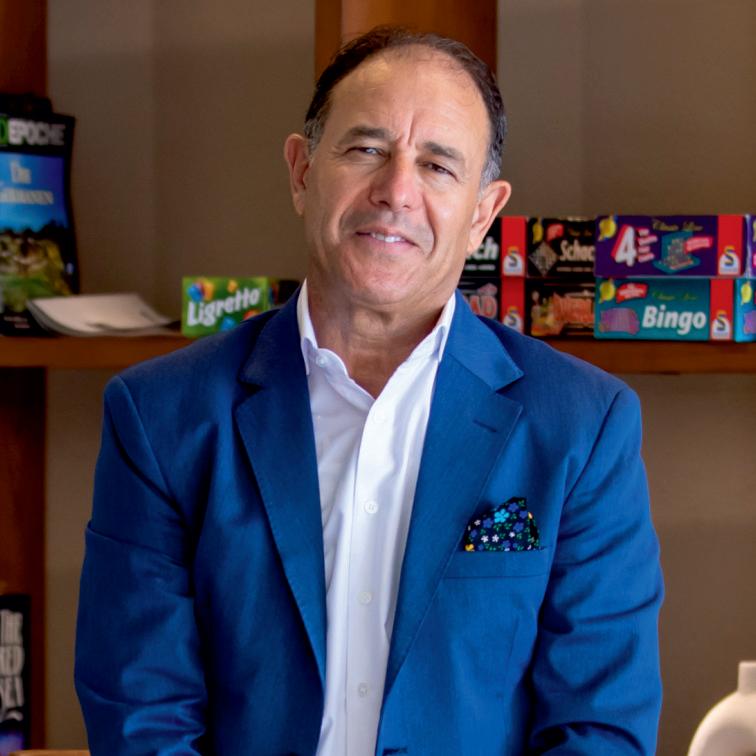

Quiet Leadership: Strength in Stillness, Power in Presence
22
The Power of Presence: Leading by Being, Not Just Doing

Art
Business
Business
Digital
Co-designer
Marketing











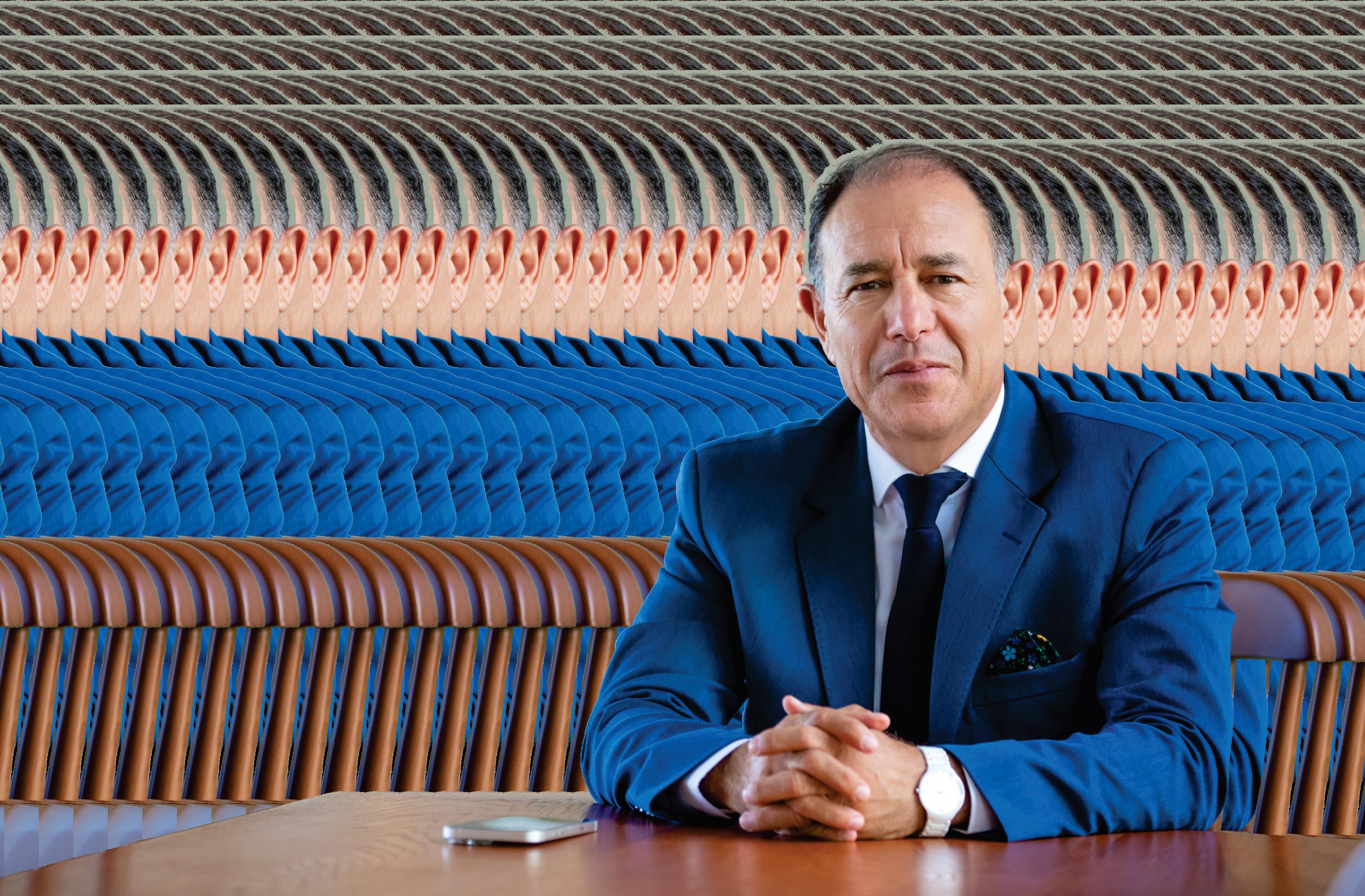
Cluster General Manager | DER Touristik Hotels & Resorts

In a field where ambition can trump authenticity and turnover frequently exceeds permanence, Mehdi Othmaniisprovidingawelcomecounter-narrativethat is characterized by presence, principle, and intentional leadership rather than self-promotion. He never planned his path into hospitality; it came to him subtly at the age of 19, when he witnessed a Tunisian hotelier transforming a latenightcheck-inintoawelcominggesture.Subtlebutprofound, thatencounterlaidthegroundworkforacareercharacterized by cultural acuity, emotional intelligence, and a leadership stylethatisincrediblyhuman-centered.
AstheClusterGeneralManageratDERTouristikHotels & Resorts, Othmani brings more than 20 years of international expertise in the Caribbean, the Middle East, Africa, and Europe. His accomplishments, which include leadershipawardsandsustainabilityhonors,arenotwhatset himapart;rather,itisthemannerhehasestablishedcultures basedontrustacrosscountries.Hehasastraightforwardyet profoundphilosophy:leadbymakingroomforotherstorise.
Realleadership,accordingtohim,isneverlouditisfelt.This istruewhetherheisguidinghisteamsthroughtheCOVID-19 crisis or enabling quiet voices to become self-assured changemakers.Overthesiteshehasmanaged,hiscomposed, strategic presence has improved employee engagement and guestexperiencewhilealsoraisingoperationalstandards.
In a society that that is seeking genuine leadership, Mehdi Othmani is creating meaning in addition to results. And in doing so, he keeps redefining what it means to be a heartcentered leader in the constantly changing hospitality industry.
TheSparkThatIgnitedaCareer
Othmani's entry into hospitality wasn't born from a grand vision or childhood dream. At 19, he stood in the lobby of Club La Noria in Gammarth, seeking nothing more than a summer job to fund his education. It was there, watching a front office manager greet a late-arriving family with calm assurance,thatheexperiencedwhathenowcallshisdefining moment.
"I realized hospitality wasn't just rooms and service it was emotional architecture ” he says His quiet confidence dissolved their fatigue and made them feel at home. That momentsparkedsomethingdeepwithinme."
This revelation would become the cornerstone of his philosophy:hospitalityisstorytellinginrealtimeanarrative ofcare,excellence,andpossibility
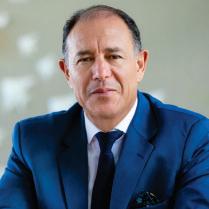
“Growth begins when you stop performing and start becoming. True success is not loud; it's the quiet confidence of knowing you've led with integrity, cared deeply, and stayed grounded in what truly matters.”

It's a belief that has guided him through leadership roles across Europe, Africa, the Middle East, and the Caribbean, from his early days in food and beverage management in Mexico and the Dominican Republic to executive positions thatwouldeventuallybringhimbacktoNorthAfrica.
WhatsetsOthmaniapartintheglobalhospitalitylandscapeis his cultural agility, a skill honed through years of leading diverse teams across multiple continents. His approach to leadership transcends traditional management paradigms, focusinginsteadonwhathecalls"culturalintelligence."
"Leading teams across Europe, Africa, the Middle East, and theCaribbeantaughtmethatsuccessisrootedinhumilityand cultural intelligence. Trust is not a tactic—it is a foundation builtthroughrespectandpresence."heexplains.
This philosophy has yielded remarkable results. Under his leadership, properties have earned prestigious recognitions includingtheDoubleTravelAwardforHiltonHurghadaPlaza as Africa's Best All-Inclusive Resort and Egypt's Leading Green Hotel, the MENA Travel Award and TUI Environmental Award for Mövenpick El Quseir, and recognition as one of the Top 100 Worldwide Resorts by ThomasCook/NeckermannforAfricanSafariClubinKenya.

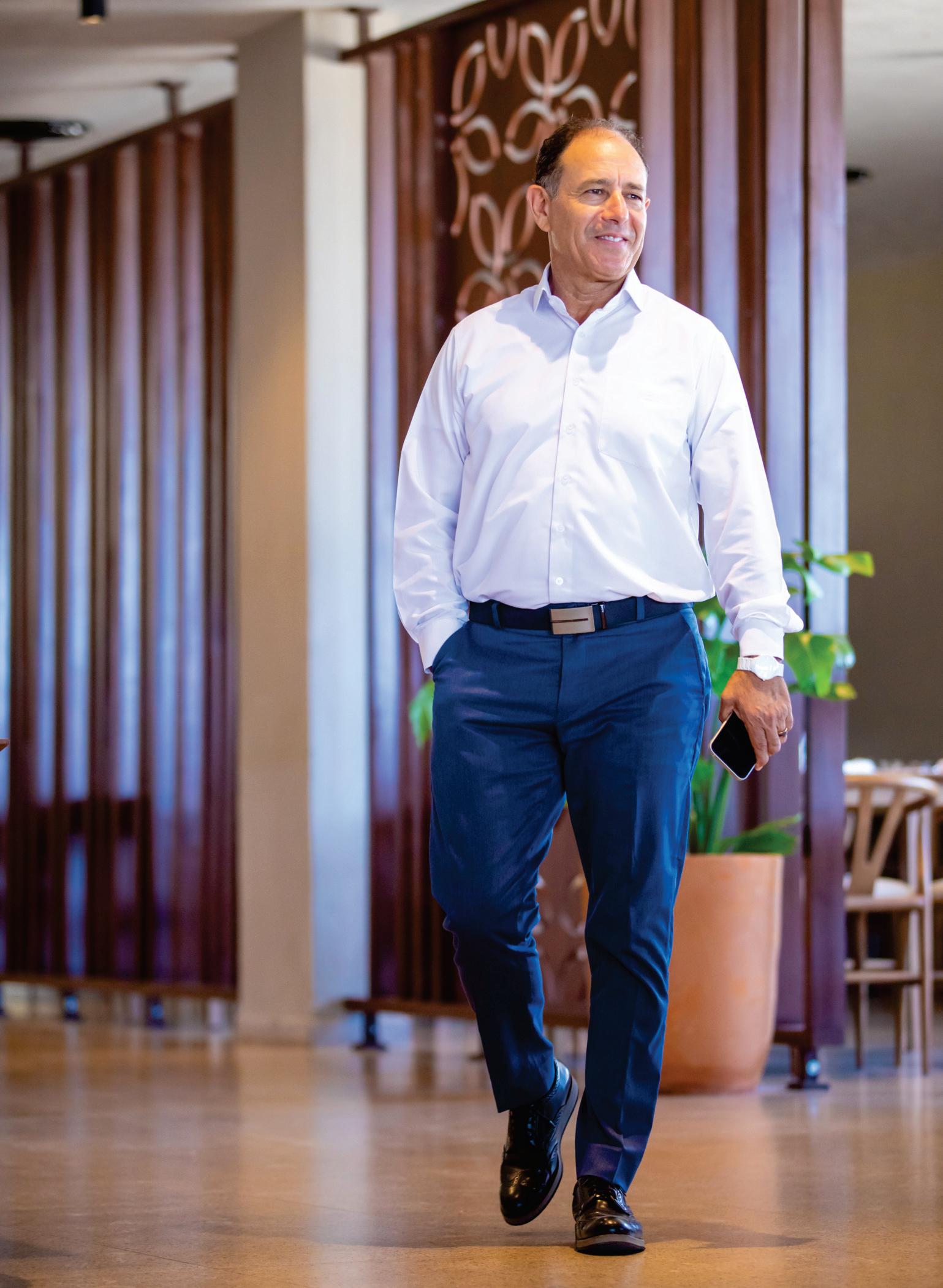

“For the first time in my career, I stood on the other side of the check-in desk: unemployed, reflecting deeply on leadership beyond roles. It was not merely a crisis; it was a reset.”

Whenthepandemicstruckin2020,Othmaniwasservingas General Manager at Hilton Budapest City Like many in the hospitality industry, he faced unprecedented challenges as bookings vanished overnight, and uncertainty reigned supreme. But rather than viewing this as merely a crisis, he sawitaswhathecalls"areset."
"For the first time in my career, I stood on the other side of the check-in desk: unemployed, reflecting deeply on leadership beyond roles. It was not merely a crisis; it was a reset." he admitswithcharacteristichonesty
During this period, he immersed himself in crisis management, health protocols, and digital innovation. He evencompletedhisDeepDivercertificationmetaphor,forthe fact that "growth continues even underwater." When travel cautiouslyresumed,heapproachedleadershipwithrenewed clarity, implementing outdoor check-ins, flexible booking models,elevatedhygienestandards,and"work-from-resort" concepts.
"These were not just operational shifts; they were emotional signals that assured guests of safety and care," heexplained. He emphasized that the pandemic reinforced a belief he had long held leadership is not about certainty—it is about showing up for people, making courageous decisions amid ambiguity,andleadingwithhumilityandconvictionwhenthe pathisunclear
Perhaps what makes Othmani's leadership philosophy compelling is his emphasis on presence over performance. Early in his career, he fell into the trap that catches many ambitious leaders: believing that being everywhere meant beingeffectiveeverywhere.
"I once thought leadership demanded omnipresence. Life taught me differently. After an intense operational week, I went diving. Beneath the waves, surrounded by coral gardens and marine stillness, I was no longer a GM, a provider, or a strategist.Iwassimplyhuman."herecalls.
This underwater revelation quite literally transformed his approach to leadership. He began building and empowering strongteamsrootedintrustandownershipratherthancontrol. Strategicdelegationhasbecomenotjustanefficienttoolbuta catalystforteamgrowthandoperationalexcellence.
"I learned that giving others space to lead didn't diminish my role it amplified collective success." hereflects.Thisshifthas allowed him to achieve what many leaders struggle with: meaningfulpresencebothatworkandathome.
Othmani’s personal life serves as the foundation for his professional philosophy. He is married to Petra, whom he describes as an extraordinary woman whose grace, intellect, and kindness continue to anchor his journey He is also the father of two daughters, Moez and Sophia, whom he considershisgreatestteachersinempathyandcourage.
His approach to work-life balance reflects his broader leadershipphilosophy:it'snotaboutequalhoursinallroles, butmeaningfulpresencewhereitmattersmost."Oneevening, coming home late, I found my youngest asleep clutching her old Arabic storybook. That worn cover reminded me that whiletitlesfadeandachievementsblur,presenceendures."



“Leading teams across Europe, Africa, the Middle East, and the Caribbean taught me that success is rooted in humility and cultural intelligence. Trust is not a tactic—it is a foundation built through respect and presence.”

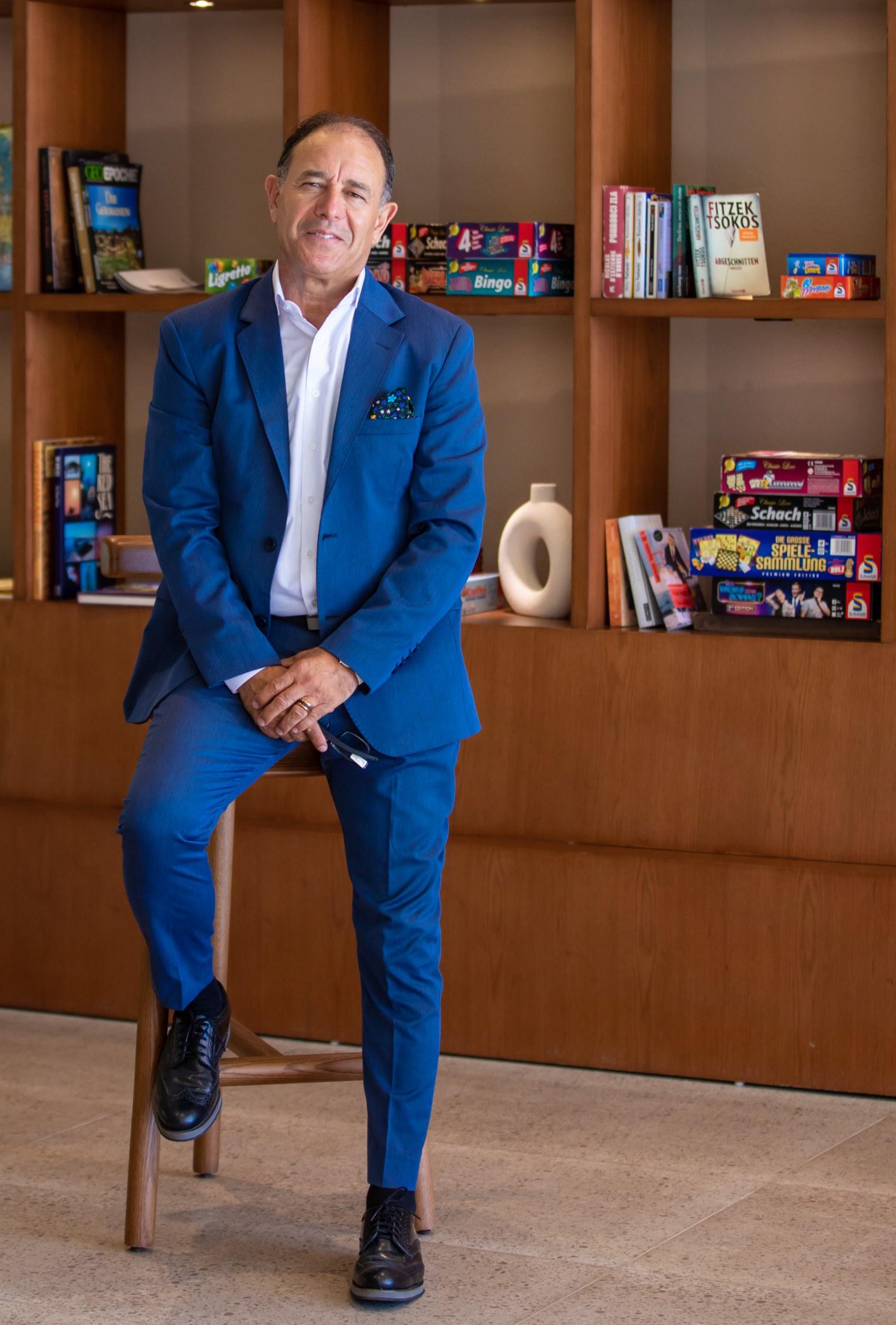

“That happened because someone listened to my quiet voice. Watching a shy team member evolve into a confident leader, or seeing a demoralized unit rise to high performance, these are the victories that fuel my purpose. ”


This personal grounding has informed his professional approach He speaks of leadership as being about "Building belief in people, in possibility, and in the quiet power of leadership done with heart." It'saphilosophythathas created space for remarkable transformations within his teams.
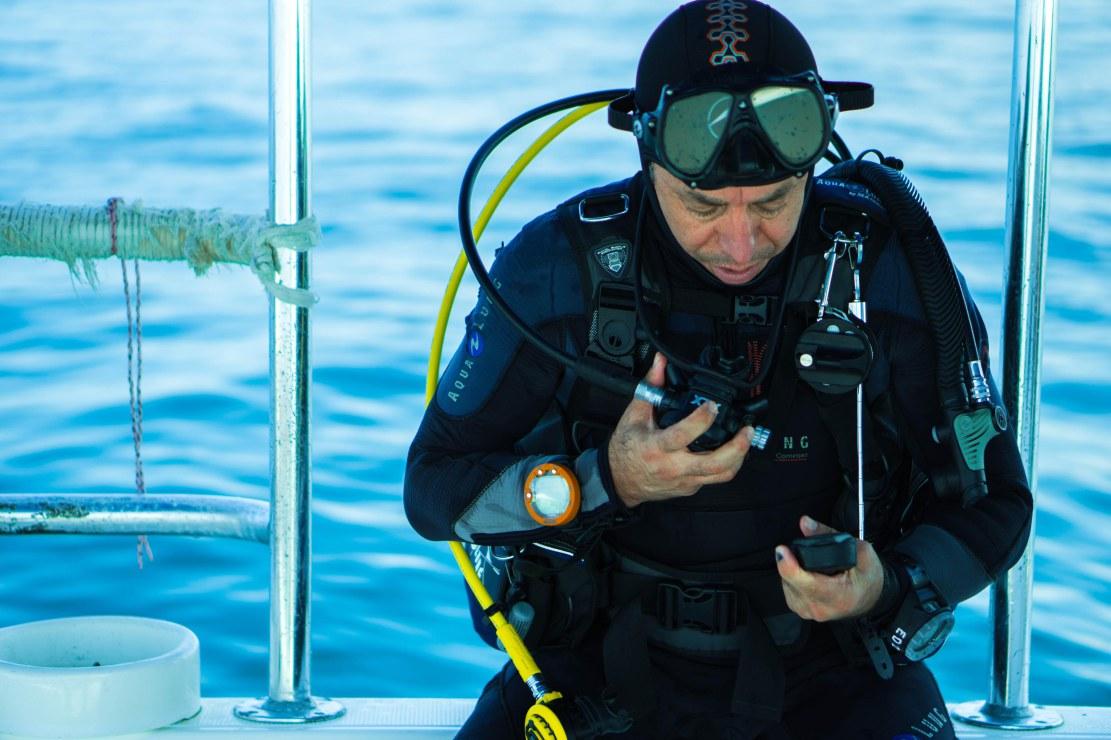
Othmani'sproudestachievementsoftenhavelittletodowith awards or recognition. He recalls a shy team member who proposed a guest feedback tracking idea that increased satisfaction scores by 18% within two months. That team memberbecameFrontOfficeSupervisorbyyear-end.
"That happened because someone listened to my quiet voice. Watchingashyteammemberevolveintoaconfidentleader,or seeing a demoralized unit rise to high performance, these are thevictoriesthatfuelmypurpose."Othmaniexplains.
Hisadvicetoaspiringleadersreflectsthisphilosophy: "Don't seek to be the smartest in the room; create spaces where others feel smart, safe, and inspired. Build psychological safetysopeopleinnovatewithoutfear."
ArmedwithaFinancialManagementcertificatefromCornell University and leadership programs from Franklin Covey, Othmanicontinuestoviewhimselfasastudentofleadership. HisrecentachievementasMaîtreHôtelierintheConfrériede la Chaîne des Rôtisseurs and his Sustainability Leadership Award from Green Globe (UNWTO affiliate) reflect his commitment to excellence across multiple dimensions of hospitalityleadership.
But perhaps his most telling credential is his Deep Diver certificationareminder,hesays,that"depthoftenliesbeneath whatisvisible."It'sametaphorthatcaptureshisapproachto leadership: looking beyond surface-level solutions to understand the deeper currents that drive organizational success.
As Othmani leads his properties through the post-pandemic recovery and positions them for future growth, his focus remains unchanged from those early days in Gammarth: creating meaningful impact through leadership. His mantra reflects this commitment: "Growth begins when you stop performing and start becoming. True success is not loud; it's the quiet confidence of knowing you've led with integrity, careddeeply,andstayedgroundedinwhattrulymatters."
Lookingtowardsthefuture,Othmanienvisionshisrolenotas one of building monuments to his own success, but as one focusedoncreatingfoundationsforotherstobuildupon.He believes that powerful leaders don't take up space; instead, theycreatespaceforotherstorise.Inhisview,thatiswhere realgrowthlivesandwhereameaningfullegacytrulybegins.
In an industry often characterized by high turnover and burnout,MehdiOthmaniisrepresentingadifferentmodelone whereleadershipismeasurednotbythenoiseitmakes,butby the silence it creates for others to find their voice. From the palmtreesofGabèstotheshoresoftheRedSea,hisjourney continues,guidedbythesameheart,hunger,andcommitment to human connection that sparked his calling more than two decadesago.
Thestoryisstillbeingwritten,butthechapterscompletedso far suggest that the most powerful revolutions in leadership mayindeedbethequietones.






Inaworldthatsometimesidolizestheloudestvoiceinthe
room,theboldestvision,orthedominatingpersonality,it is easy to underestimate the quiet leader But in boardrooms, classrooms, innovation studios, and communitiesacrosstheplanet,itisquietleadershipbasedon steady conviction, deep listening, and unshakable integrity that is increasingly demonstrating itself to be both powerful andlife-altering.
Quietleadershipisnottoughnessordrama.Itspowerisfound inquietness,thoughtfulness,andreflectiveness.Theydonot alwayscommandtheroomordominatetheconversationbut have an impact nonetheless.Theybuild trust through steady constancyratherthanloudness.Theyarenotafraidtoleadbut beginwithempathy,simplicity,andhumility.
RedefiningWhatPowerLooksLike
The very definition of leadership has been defined by commandandextroversionforfartoolong.Forcenturies,the conventionalwisdomhasequatedcharismawithcompetence and decisiveness with dominance. But with changing businessesandworkthatismorecollaborative,nuanced,and human-centered, the very definition of leadership is expanding.
Quiet leaders redefine power as not domination but as influence that's meant. They lead with intentionality and emotional intelligence, demonstrating that strength doesn't have to come from yelling. Indeed, their capacity to give space to others—and not take it up—frequently constructs teamsthataremoreinnovative,moreself-directed,andmore driven.
This leadership style is not about being passive. It's about strategicaction—knowingwhentosaywords,whentolisten, and when to get out of the way so others can be in the spotlight.
Under pressure, when panic can blur judgment and din can swamp clarity, quiet leaders offer something of value: stillness.Quietleadershipisnotinaction;stillnessisnotbeing static but having the capacity to stop, consider, and respond instead of react. Stillness is the pillar of sound decisionmakingandlucidstrategicthinking.
Itallowsforthequietleaderstobethereandattuned—tobe completely here with the moment, with the atmosphere in a room, with the unspoken dynamics between members of a group, with the currents of power and influence that no one talksabout.Theirchoicesarenotconditioned,butdeliberate onesgroundedinvaluesandcircumstance.
During periods of chaos, it's usually the calmest, most nononsenseleader,notthemostvocalone,whoquietsthecrew and grounds them Their tranquil presence embodies psychological safety, allowing others to move through uncertaintywithconfidence.
If loud leadership speaks, quiet leadership listens. And not just passively at that. Quiet leaders engage in active, deep listening. They don't interrupt to be heard or switch into solution mode. Rather, they listen to understand—people's reasons,struggles,aspirations,andanxieties.


This ability to really listen creates trust and reveals understanding that could be lost otherwise. It adds depth in teamrelationshipsandbringsforthideasfromeverycornerof theorganization.Itprovidesroomfordiversityofthoughtand input—indicationsofinclusive,high-performingcultures.
In a partnership-and-innovation-led economy, the silent leader's listening power is not a soft skill—it is competitive capital.
Oneofthedistinguishingcharacteristicsofquietleadershipis being present. They are fully present in the moment, never distracted by ego or drama. They do not need to "perform" leadershipbutliveitinthewaytheyshowup,inthewaythey treat other people, and in how they remain centered in their values.
This type of presence requires gravitas, not bluster It tells others to breathe, think, and act with purpose. It is this presence, rather than noise, that seeps into organizations, changingculturesfromreactivetoreflective,transactionalto substantial.
Quiet leaders are followed because they are trusted—not to sayeverything,buttosaytherightthings,intherightway,at therighttime.
Quiet leaders are very humble. They don't want to be in the center or the spot. Rather, they allow others to shine by providing their teams with space to lead, contribute, and develop.
They promote shared ownership, knowing that leadership is notamatterofhierarchybutservice.
It allows them to make errors, take advice, and learn forever—allqualitiesneededintoday'sfast-changingworld. And because they lead by humility, their team members respondwithopenness,flexibility,andrespect.
Empowermentisabyproduct,notamanagementtechnique.
Conclusion:ALeadershipModelfortheFuture
Inatimecharacterizedbynoise,speed,andcomplexity,quiet leadership has something more precious today: clarity, calmness, and depth. It disrupts earlier models of what leadership should be like and sound like and proves that presence, calm, and quiet firmness are as powerful—if not morepowerful—thanvoiceandvisibility.
Organizations that aspire for sustainable success require leaders who can think deeply, listen sincerely, and act reflectively Leaderswhomakeroomforothersandmobilize people through authenticity Leaders who know that power doesnotnecessarilycomeintheformofwantingtobefirstto be heard, but most often being the one who gets to have the lastword.
Quiet leadership is not an oxymoron. It is a courageous, purposefuldecision—onethatseeksconnection,notcontrol; meaning,notmotion;andimpact,notimpression.
Thosewhoareleadingtheworldforwardmightbethequiet leadersmakingthebiggestnoiseofall.

Intoday’shyperconnected,performance-obsessedworld, leadershipisoftenmistakenforrelentlessaction—more meetings, more strategies, more visible outputs. While execution is essential, a growing school of thought—and practice—reminds us that great leadership is not just about doingmore.It’saboutbeingmore.
This is the heart of presence: being able to lead not only throughwhatyoudo,butalsothroughwhoyouareandhow you are present. Presence is the stillness of strength behind bold decisions, the peace in turmoil, and the sense in complexity.Itisthesilentmessagethatothersreceivebeforea word is ever said—a blend of self-awareness, authenticity, intentionality,andemotionalconnection.
Inatimeofgloryinginspeedandscale,thepowerofpresence providesacounterintuitivestimulus.Itinvitesleaderstoslow down,listenup,andleadfromtheinsideout.
It'saboutalignmentbetweenyourinnerstateandyourouter behavior Leaderswhohavepresencearefullypresentinthe moment.Theydeeplylisten.Theycommunicateonpurpose. And most importantly, they establish an environment where othersfeelheard,respected,andempowered.
Presence isn't about dominating the room. It’s about anchoring it—offering stability, focus, and emotional clarity amid uncertainty People gravitate toward leaders with presence because they radiate trust, intention, and authenticity FromReactivetoReflectiveLeadership
Contemporary leaders tend to be trapped in a cycle of urgency—responding to emails, dashing from meeting to meeting, resolving issues at the surface level. This hyperresponsiveness can result in decision fatigue, short-term thinking, and emotional exhaustion. Presence breaks that cycle.
Presenceisusuallyconfusedwithcharismaorcharm.Those might be part of it, but authentic leadership presence goes deeper
Throughthedevelopmentofpresence,leaderstransitionfrom being reactive to reflective. They hesitate before they react.
They think about the greater consequences of their actions. They remain rooted in their values, even in times of stress. Andinsodoing,theymakemorereflective,better,andmore enduringdecisions.
Presenceisaleadershipsuperpower—allowingforclarityin themidstofchaosandpurposeinthemidstofpressure.
Great leaders don't occupy space—they make space for others. When leaders are present, they create a sense of psychological safety and trust.They listen and make people feel heard They affirm multiple perspectives And they demonstratethekindofthoughtfulbehaviortheyhopetosee inothers.
Presence,inthissense,isanactofgenerosity.It’saboutgiving others your full attention and energy It’s about being available—notjustphysically,butmentallyandemotionally
In team settings, a present leader is more likely to build engagement,unlockcreativity,andstrengthencollaboration. Presence fuels connection and connection fuels performance.
Presenceisn'tperformative;itispracticed.Ittakesintentional inner effort: establishing self-awareness, emotional intelligence, and resilience. Leaders who are present know themselves well.Theyknow their triggers, their blind spots, their strengths, and their values. They take care of their internal state, so they can show up with clarity and consistency
Thistypeofself-leadershipisnotaluxury,butarequirement fortheabilitytoleadotherswell.Intruth,muchofthemost effectiveleadershipdevelopmenttodayisnotaboutacquiring additional skills, but about the development of presence, awareness,andalignment.
Reflection, meditation, coaching, and conscious silence are no longer esoteric they are fundamental tools of contemporaryleadershipmaturity
PresenceinaVirtualWorld
As the world becomes more hybrid and remote, presence acquiresanewmeaning.Withfewerphysicalcuesandmore onlinedistractions,leadershavetoworkthatmuchharderto bepresent—bothonscreenandoff.
Itishangingupthephonewhenspeaking.Beingpresentwith aviewfinder.Single-taskingandlistening.Beingemotionally present,evenfromadistance.Inavirtualsetting,presenceis the difference between a transactional encounter and a transformationalrelationship.
The most effective virtual leaders are those who bring presence to every conversation—making people feel seen, centered,andcharged,eventhroughascreen.
Whenleadersleadwithpresence,itdoesn'tremainisolatedto the C-suite. It ripples through the culture. Teams get more intentional.Communicationgets more respectfuland direct. Meetings get more purposeful. And performance becomes moresustainable.
Presencecreatesatone—astandardofattention,respect,and focus that others come to replicate.Thus, presence becomes not only an individual attribute, but a capability of the organization. It drives cultures of trust, mindfulness, and authenticity—cultures that engage and retain talent, manage change,andleadwithhumanity.
Conclusion:BeingIstheFoundationofDoing
Leadership is not just about output anymore. In an age that callsforagility,empathy,andmoralclarity,itmattersasmuch as what you do how you show up. Presence isn't a soft addon—it'sabedrockstrength.
The most effective leaders now are those who grasp the strength of being—being present, being purposeful, being authentic.Theydon'tleadbyresponding,butbyreacting.Not by dominating, but by building relationships. And not by convincing, but by living into a vision that people desire to join.
In an era of complexity, presence is a scarce and potent differentiator.And intheend,itmightbewhatdistinguishes thegreatfromthegood.

I am so excited that Jessica Summers has the answer —and it’s a movement.
From July 15 to 29, Jessica is hosting the Journey To Triumph Free Online Interview Series, featuring transformational conversations with women from around the world Each day, a new interview is released—spotlighting raw, powerful stories of what it really takes to rise with triumph, lead with purpose, and boldly step into a new norm.
“These are the change makers, They've walked through fire and came out as light—for their families, their communities, and for themselves." Jessica shares.
This isn’t about surface-level success. It’s about healing, truth-telling, and vision. The kind of stories that make you sit up a little taller. Breathe a little deeper. And finally say, “That’s me. I’m ready.”
Whether you’re quietly rebuilding or rising louder than ever, this series is your invitation to remember: you’re not alone—and your story isn’t over.



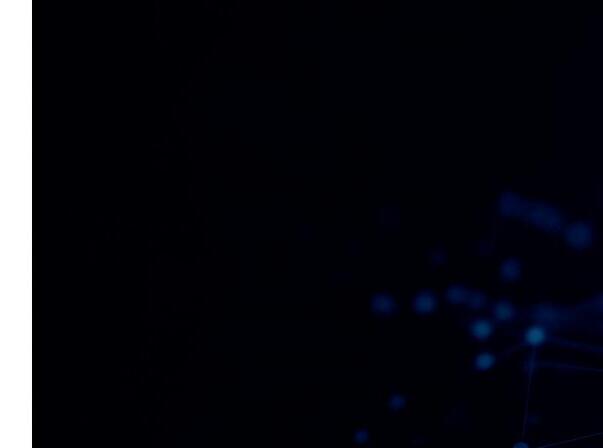











For Subscrip�on: www.insightssuccessmagazine.com
www.x.com/insightssuccess

